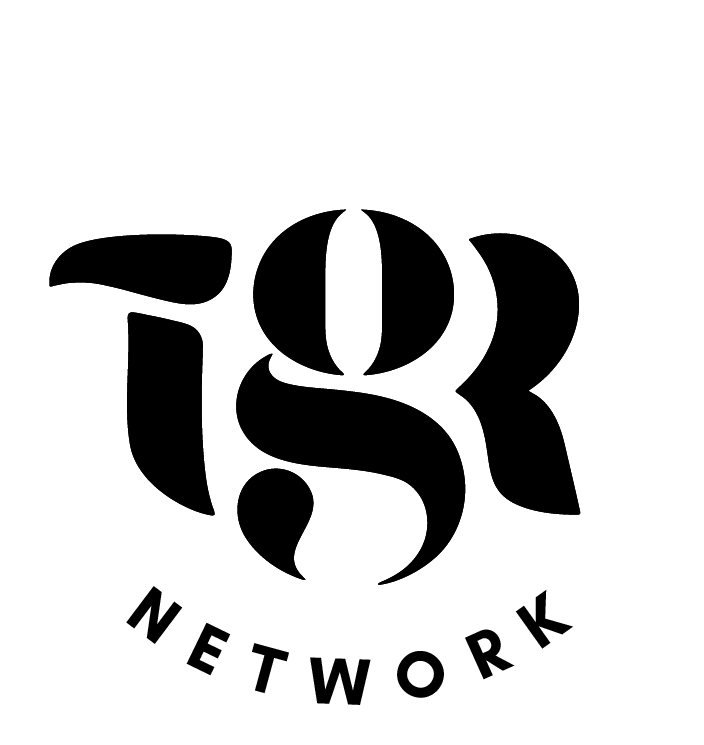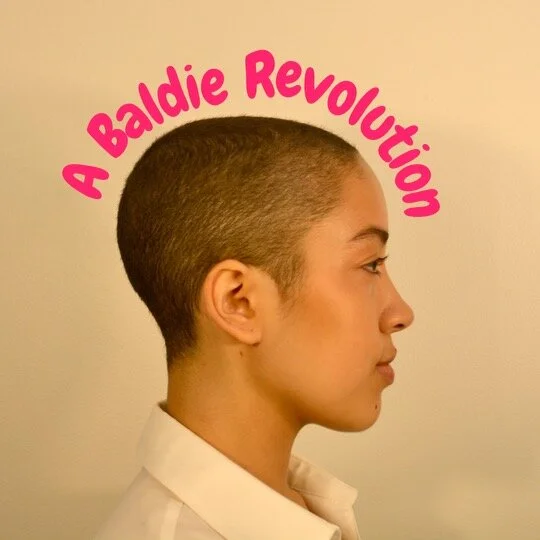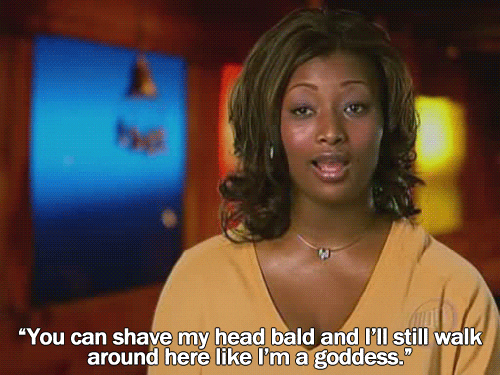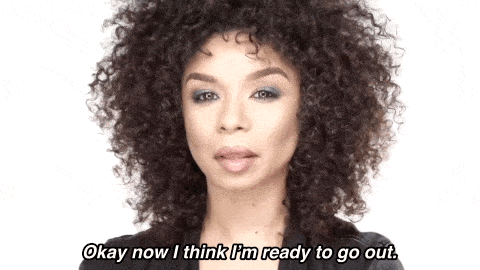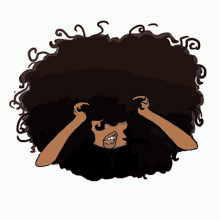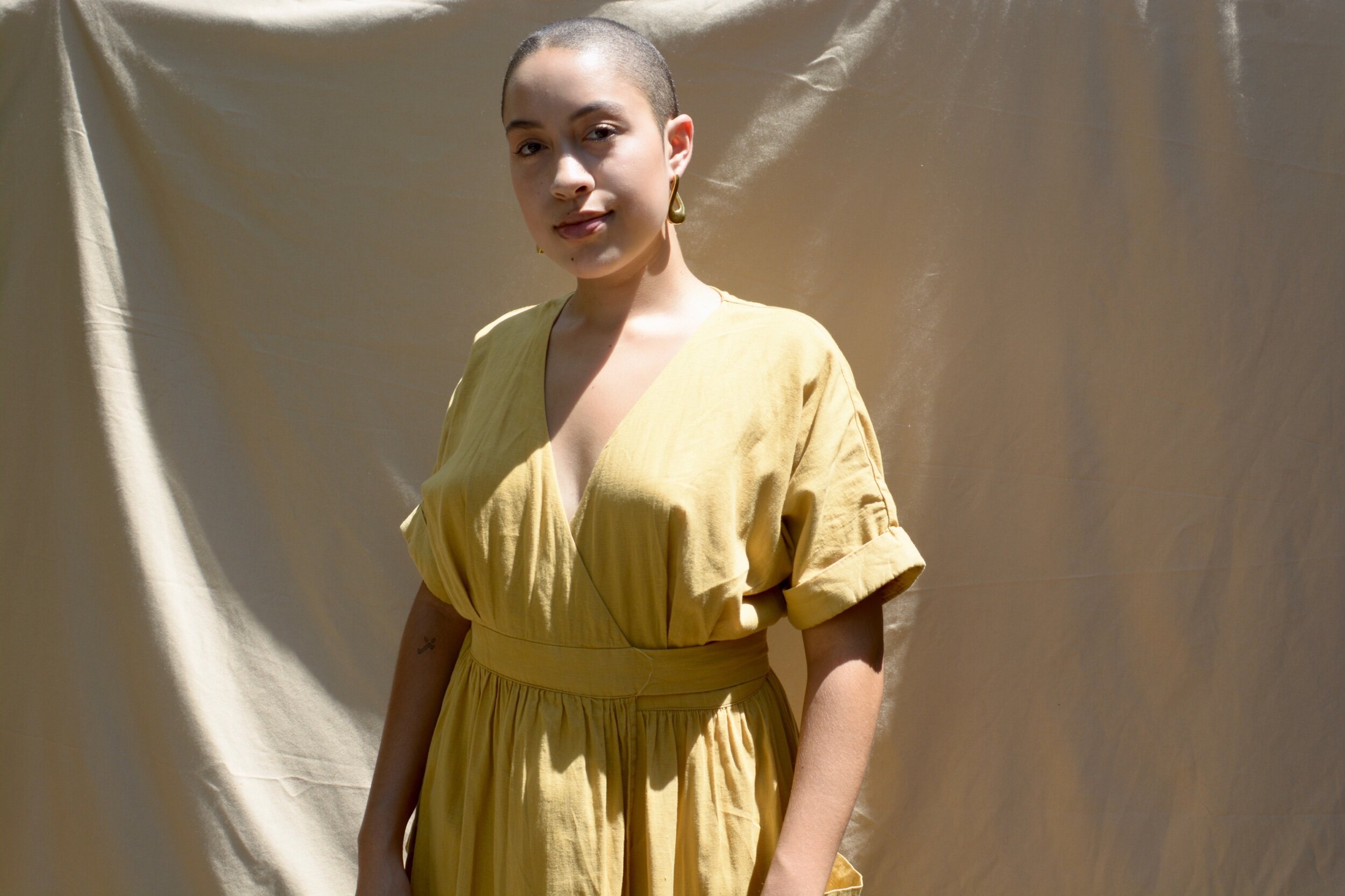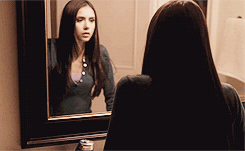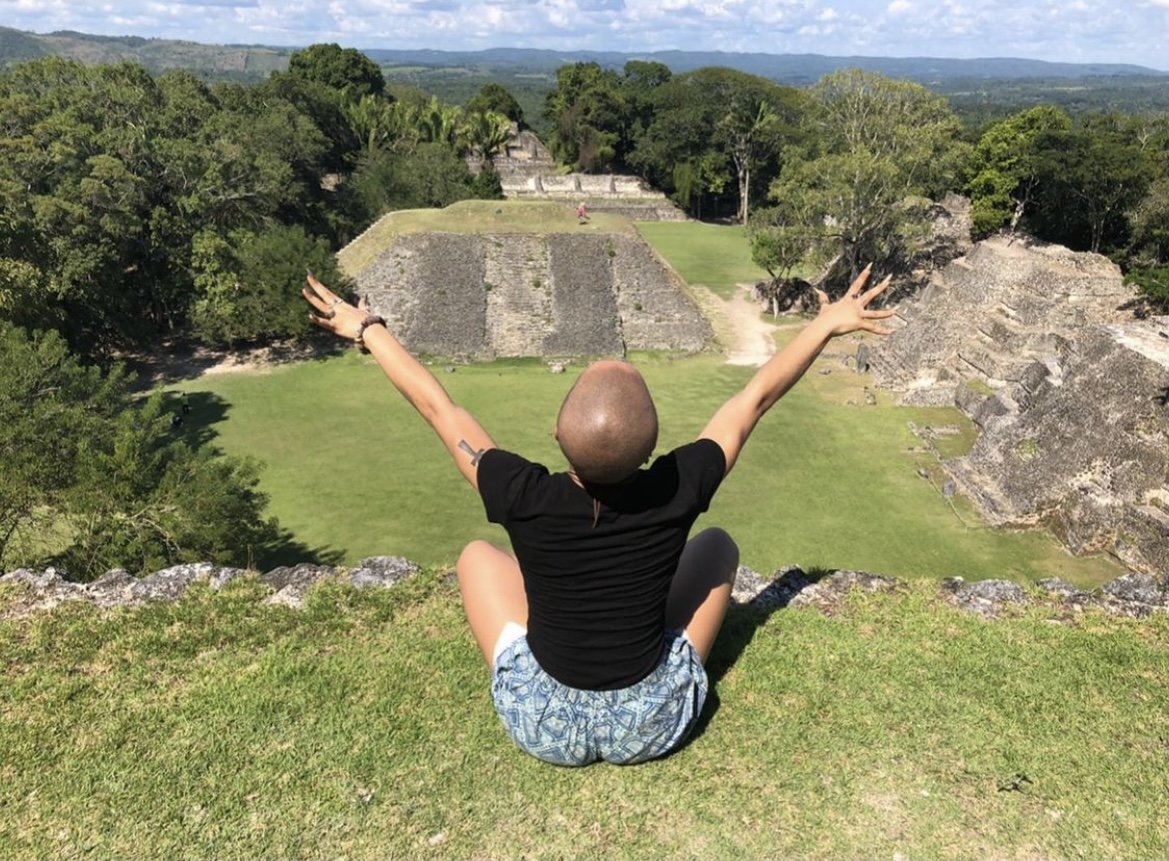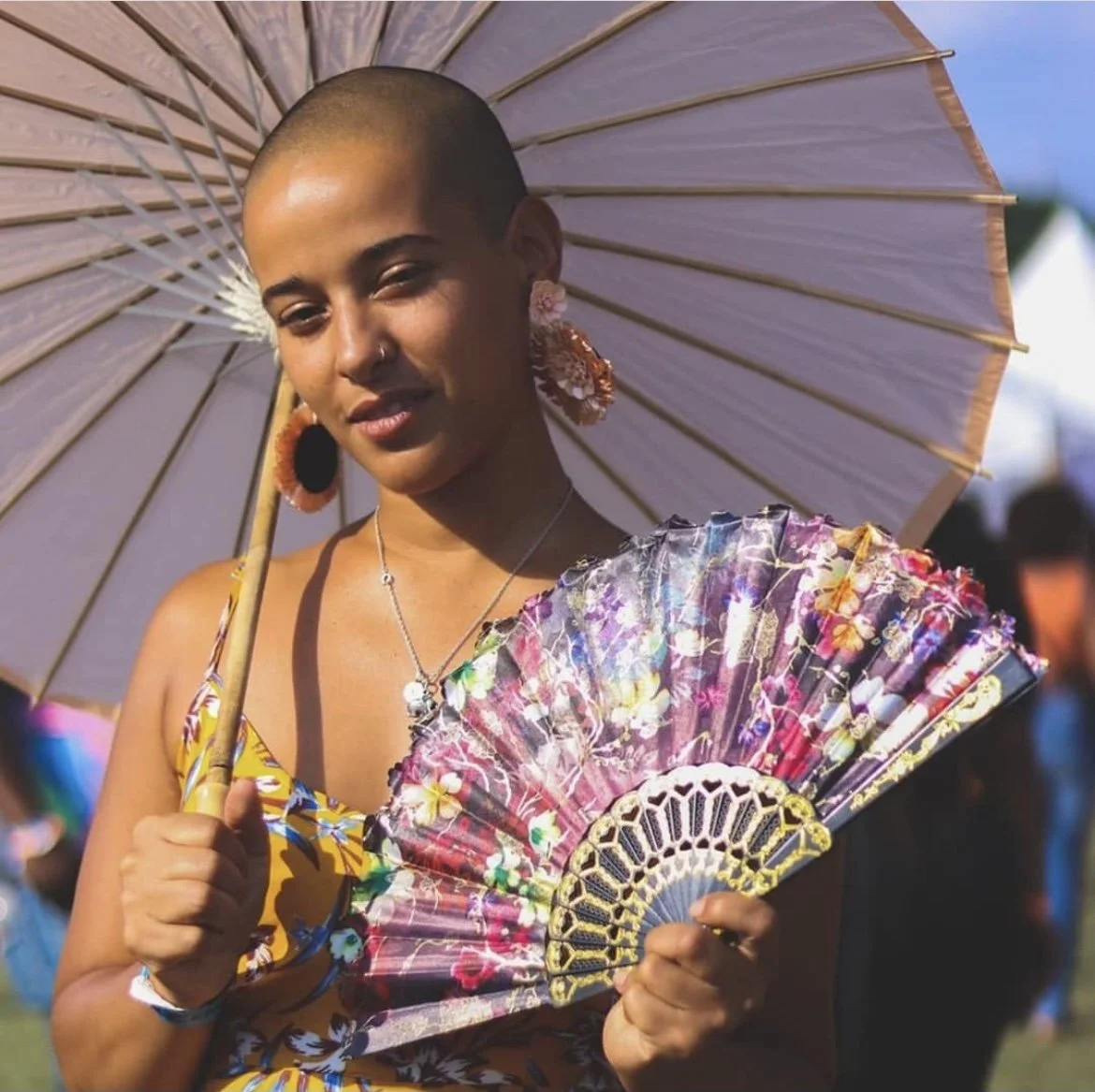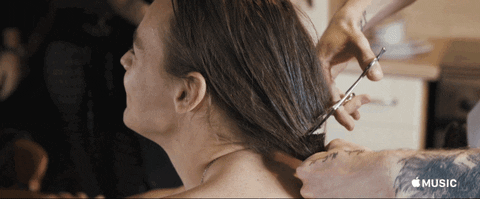A Baldie Revolution
“Your hair is your beauty.” Since I was a child my Caribbean grandmother drilled that phrase into me. Like any child looking to their elder for guidance, I believed her. That message, further perpetuated by the media and beauty industry, occupied every space where women and femininity were. As a result, I’d maintained my mid-length, type 3b and 3c, curly brown hair loyally and diligently for most of my life. When I shaved my head bald in summer 2020 it was a surprise to many who knew me. My hair was gone but my beauty wasn’t. In fact, I gained insight into who I am and got closer to the confident, fearless person I’m working every day to embody.
I had the revelation that I have complete control over my body. I began to consider more carefully how I can better care for and respect it. I realized I have the right to define and set boundaries for myself and others. Doing so acts as a mechanism to support my overall wellbeing. Unwarranted criticism and false messages may continue to be produced on the outside, but I get to define meanings, feelings, and expressions of femininity for me. Because of my empowering decision to sport the bald look, I’ve embarked on a journey in which I’ve embraced unique expressions of femininity and masculinity.
To be truthful, the journey to commit to the shaved head style was a wavering one, full of doubt and uncertainty. My curly hair was a huge part of my identity for years. Because I internalized the opinions of others — which influenced my view and understanding of myself — I became lost in the superficial, which limited unique expressions of beauty.
My family has ancestral roots in Puerto Rico, Haiti, Lebanon and Europe. My tight curl pattern, inherited from my mother, serves as a beautiful marker and celebration of my blackness. But it was challenging to care for my natural curls properly. I’d often visit a Dominican hair salon to have my hair blown out. It was time-consuming and uncomfortable, but it temporarily made my hair more manageable. Over time the heat became damaging, so I vowed to never straighten my hair again shortly after my high school graduation. I began to embrace my natural, curly hair. That was the beginning of setting my own rules and stepping into claiming my space.
Wearing my natural hair got expensive because I was buying products and then finding they didn’t work well. But I loved how my curls looked and others found them beautiful too, so I tried my best to maintain it. Men, especially, liked to tell me my hair was pretty, or “exotic,” and would often frame degrading comments as compliments or conversation starters. Back then I didn’t know to be offended; I confused the flatteries as the sole qualities that made me beautiful.
Although I liked wearing my hair natural, my curls became incredibly dry because of lack of proper care. The strands broke and changed in texture. My hair became weaker and thinner, and my self-esteem suffered.
In 2019, I turned to a hairstylist recommended by my younger sister (who has a looser curl pattern than me) for a trim and hair care advice. The appointment did not go well and ultimately crushed my spirit. While I sat in the salon chair the stylist said things like, “I don’t understand how your hair could be so different from your sister’s,” and “Look how dry and damaged it is!” She suggested I shave it off and start over.
“As someone rooted in the superficial, I dared to ground myself.”
I walked out of that studio completely destroyed and teary-eyed. She’d cut so much of my hair off and my self-esteem was depleted. I began to actually consider the stylist’s recommendation to shave my hair off and start again, but I was operating from a place of defeat and discouragement. I agreed that a fresh start could be helpful but I needed time to consider it with a more positive approach.
The decision to shave my head took deep contemplation. It took me a year from that awful hair appointment to start thinking about it. I searched the style and admired how it looked on other women, but doubted I could pull it off. I also didn’t know if I had the courage to go through with it, or the ability to grow my fragile hair back. I asked family and friends what they thought about the idea and tried to visualize myself without hair.
I decided to reach out to two bald women I knew for encouragement to take on the journey. I asked if they thought the style would work for me (my insecurity was high) and what the experience was like for them. One woman, a dancer named Ikira Peace, referred to it as a rebirth and a deeper embrace of self. “You literally see you and just you! No distractions or illusions,” she told me. “It’s your identity to embrace and create.”
As someone deeply rooted in the physical and superficial, I dared to ground myself. It seemed as if this experience could turn into a holistic adventure back to me — the parts of me I was a stranger to and had to be led by faith to engage more intimately with. I was coming home to “her.”
I also reached out to Yenni Pajon, a Dominican-American hair stylist and healer. She gave me useful encouragement as well. We waited for COVID-19 infection rates to decrease to arrange an appointment. As months came to pass, I became better mentally prepared to take the leap. I met with Yenni at her apartment and invited my sister along for support.
Yenni gently took her scissors and cut away my hair in sections, clumped by dryness and broken from damage. She cut until the sides were short enough to shave. As she grazed her clippers along the swirly directions in which my hair grew, I caught a glimpse of myself for the first time. With each clump of hair that fell to the ground I radiated brighter and smiled bigger. After months of sorrow from the pandemic and years of feeling self-conscious, there was so much joy in that moment that I couldn’t recognize myself aglow in the mirror. Yenni finished and cheered, calling the experience “a baldie revolution.”
Ikira was right — I saw my true self for the first time. I greeted her lovingly every time I looked in the mirror. I couldn’t stop looking. With the exhausting curls out the way, I noticed the curves of my face and high cheekbones, the unique qualities that now had space to be seen and appreciated. I felt refreshed, soft, lovable and open.
I mostly felt feminine energy, but I also welcomed the presence of masculinity that gifted me with a sense of strength, confidence, and great power. Opinions from others didn’t matter much anymore because I both saw and felt deeply that I was beautiful. It was a new kind of beauty that overflowed from the boxes I was limited by when I had hair.
At that moment, I promised to never dismiss myself in any capacity ever again. I felt inspired to live my life honestly, free from the limitations set by others, especially in regards to self-esteem, self-worth and feminine beauty standards. It was an end and a fresh beginning. I set myself on a path of learning and exploring how to operate from spaces of love and acceptance, starting with me.
Although I’ve let my hair grow since shaving it last year, the experience showed me I can be low-maintenance, free, and courageous. It gave me a matured, well-rounded perspective on beauty. For anyone who may be on the fence about shaving your head, I encourage a “baldie revolution” of your own. It can be a fresh start to your hair care journey, or simply a journey in self-exploration. What you gain will likely surpass your expectations and make you an improved, kinder person.
